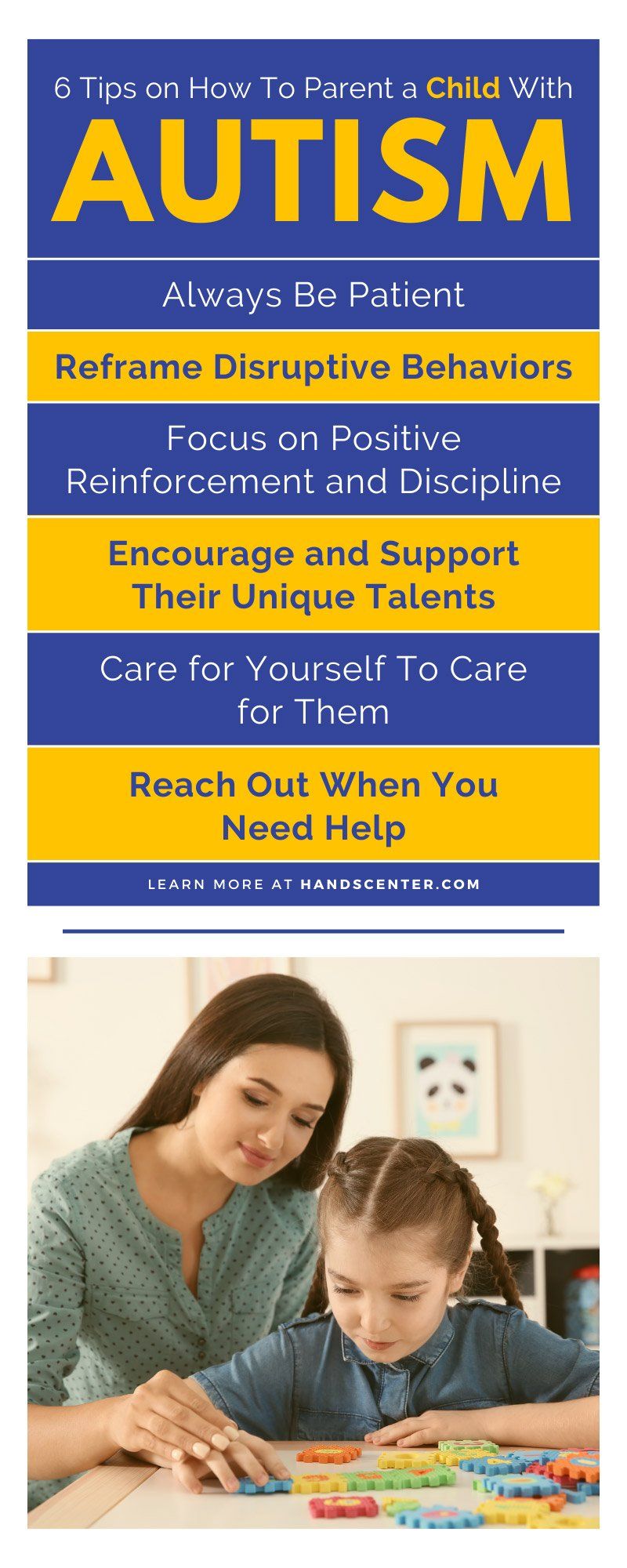6 Tips on How To Parent a Child With Autism
While every parent out there expects bumps in the road as they raise their children, having a child on the autism spectrum can present unique challenges that parents of neurotypical children don’t often consider. Whether you have your first child and learn that they’re on the autism spectrum or have experience with a child who is not, you’ll likely need to change your parenting strategy slightly to be the best source of support you can be for your children.
There is no one-size-fits-all method for parenting. Every child requires specialized techniques to help them with what they struggle with most. For parents of children on the autism spectrum, these techniques might require a lot of personal effort to change preconceived notions about parenting, or it might require them to unlearn some techniques they’ve gained from parenting their previous children. To give you the best head start, we’re going to provide a few tips on how to parent a child with autism in a way that sets them up for success.
Always Be Patient
They say that patience is a virtue, which is certainly the case when parenting a child with autism. It’s not uncommon for parents of all kinds of children to become frustrated when their child doesn’t understand what they’re trying to say or what they need them to do. This is a normal part of being a parent, and it doesn’t mean you’re doing something wrong. It’s how you react to this frustration that matters most.
Children with autism often need much more time to process information, words, and instructions before putting anything into action. Changing troublesome behaviors into more productive ones can also take longer than you might want. Patience is so important in these moments as your child can tell if you are frustrated or angry with them, which will often exacerbate whatever problem you’re facing.
Reframe Disruptive Behaviors
One of the key tips when parenting a child with autism is to understand that disruptive behaviors we might want to change or improve on don’t happen because the child is purposefully doing something wrong. A child that will not stop crying or yelling in a public place isn’t being difficult for no reason; there is likely a very understandable root to their issues. Sensory overload is a common experience for many children with autism and being in loud and distracting public places can make them act out because they don’t have any other way to express themselves.
If you are frustrated by these behaviors, do your best to reframe your initial thoughts. Your child isn’t a bad kid because they won’t be quiet in public, they are having a real problem that they don’t know how to deal with, and they need your help to feel better.
Focus on Positive Reinforcement and Discipline
Any child displaying disruptive or unacceptable behavior can cause a parent to react faster than they should, often in a way that isn’t conducive to stopping that behavior effectively. It’s very important to understand that negative punishments rarely help the situation. While you shouldn’t let your child get away with every bad behavior, changing a behavior to a more desired one is often the more effective solution. How do we do this without resorting to harsh punishments?
ABA therapy for children with autism focuses heavily on positive reinforcement. Sometimes, parents will focus too much on negative behaviors they don’t want to see without acknowledging the positive ones they do want to see. Positive reinforcement gives more power to the latter. Punishing negative behavior has been shown to be less effective than rewarding positive behavior, especially in the long run.
Encourage and Support Their Unique Talents
Children with autism run the gamut when it comes to their unique talents and quirks. It’s a common occurrence that a child with autism will become very fixated on something they love. One of the best things you can do to improve your child’s life and strengthen the connection between you two is to take an active interest in the things they love doing. You can even use that talent or interest as a jumping-off point for expanding their horizons and improving their social skills.
Parents of children with autism can sometimes become laser-focused on improving the areas of struggle that their children have without taking the time to understand where they already excel. Celebrate those things that make them unique.
Care for Yourself To Care for Them
It’s no secret that good parents will do practically anything for their children to live better lives. Often, this can mean that the parents will forego their own well-being to continue caring for their children as best as possible. As well-meaning as this mindset is, it can backfire on you if you end up burning yourself out. A parent amid serious burnout can transfer those feelings to their child in ways they might not expect.
You need to care for yourself as much as you are able. If you must frame it in a way that helps your child, think of it as modeling emotional intelligence to them. How will they ever know to prioritize their needs and feelings if they never see their parents do it?
Reach Out When You Need Help
Parenting is not an easy job. No matter how many books you read or videos you watch about parenting, you just can’t do everything on your own. You’re only human, after all. If you realize that you need assistance in overcoming the challenges of raising a child with autism, that doesn’t make you less of a parent. In fact, admitting when you need help and finding the help you need are signs of a parent wanting to give their child every opportunity to succeed.
If you’re looking for professional therapeutic services for your child with autism, we’re here for you. The HANDS Center for Autism is an autism therapy center in North Carolina that specializes in helping children and parents take on the challenges ahead with more confidence. When you want the absolute best for your child, we can help make it happen and give you the tools you need to support them in the future.







